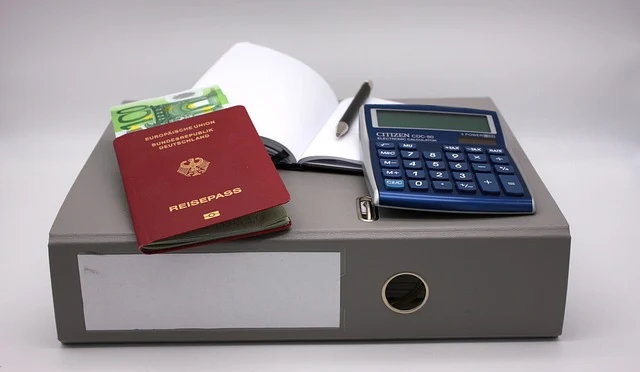Travel Insurance: A Comprehensive Guide to Finding the Best Plan
 |
| Image by Freepik |
Introduction
Traveling can be an exciting and enriching experience, but it also comes with risks. To protect yourself and your investment, it's important to have the right travel insurance plan in place. In this comprehensive guide, we will walk you through the essential aspects of travel insurance, factors to consider when choosing a plan, how to compare different options, understand crucial terminology, find the best coverage for your needs, and debunk some common misconceptions about travel insurance. We will also provide a step-by-step overview of the claims process. So, let's dive in and explore the world of travel insurance together!
Understanding Travel Insurance
What is Travel Insurance?
Travel insurance is a type of insurance that provides coverage for financial losses or medical expenses incurred while traveling. It acts as a safety net, protecting you from unexpected events such as trip cancellations, medical emergencies, lost baggage, and more. Travel insurance offers peace of mind, allowing you to explore the world with confidence, knowing that you are protected against unforeseen circumstances.
Why is Travel Insurance Important?
Travel insurance is important because it safeguards your investment and provides financial protection in case of unexpected situations. Whether it's a medical emergency that requires immediate attention, a flight cancellation due to unforeseen circumstances, or lost baggage, travel insurance can provide valuable assistance, covering the costs and ensuring you are not left in a difficult predicament. It offers a safety net and can save you from significant expenses and stress.
Different Types of Travel Insurance Coverage
There are various types of travel insurance coverage available for different needs. Some common types of coverage include:
- Medical Coverage: This provides financial protection for emergency medical expenses while traveling.
- Trip Cancellation and Interruption Coverage: This reimburses you if you need to cancel or cut short your trip due to unforeseen circumstances such as illness, injury, or other covered events.
- Baggage and Personal Belongings Coverage: This coverage protects against lost, stolen, or damaged baggage and personal items.
- Emergency Evacuation Coverage: This provides assistance and coverage for medical evacuation in case of a medical emergency or civil unrest in your travel destination.
- Flight Delay or Trip Delay Coverage: This coverage compensates for additional expenses incurred due to unexpected flight or trip delays.
- Accidental Death and Dismemberment Coverage: This coverage provides financial benefits to you or your beneficiaries in case of accidental death or dismemberment during your trip.
Factors to Consider When Choosing Travel Insurance
When selecting a travel insurance plan, it's crucial to consider various factors to ensure you have the right coverage for your needs. Here are some key factors to keep in mind:
Duration and Frequency of Travel
Consider the frequency and duration of your travels. If you are a frequent traveler, an annual multi-trip policy might be more cost-effective than purchasing individual policies for each trip. On the other hand, if you only take occasional trips, a single-trip policy might be more suitable.
Destination and Activities
The destination and activities you plan to engage in during your trip play a significant role in determining the coverage you need. If you're participating in high-risk activities like extreme sports or visiting remote areas, you may require additional coverage compared to those engaging in regular tourist activities.
Medical Coverage
Evaluate the medical coverage offered by different plans. Look for plans that provide comprehensive coverage for medical emergencies, hospitalization, emergency medical evacuation, and repatriation of remains.
Cancellation and Trip Interruption Coverage
Check the cancellation and trip interruption coverage to ensure you are adequately protected in case of unexpected events that may force you to cancel or cut short your trip. Look for coverage that includes trip delays, missed connections, and coverage for non-refundable expenses.
Baggage and Personal Belongings Coverage
Evaluate the coverage for lost, stolen, and damaged baggage and personal belongings. Ensure that the policy's limits are sufficient to cover the value of your belongings.
Pre-existing Medical Conditions
If you have pre-existing medical conditions, it's crucial to understand how they are covered under different insurance plans. Some plans may offer coverage for pre-existing conditions, while others may not. Consider your specific medical needs to ensure you select a plan that provides adequate coverage.
Comparing Travel Insurance Plans
When comparing different travel insurance plans, it's essential to gather information, evaluate coverage and exclusions, assess insurance providers, and seek customer reviews and testimonials. Here's a step-by-step process to help you make an informed decision:
Researching and Gathering Information
Start by researching various insurance providers and their offerings. Collect information about the coverage, limitations, exclusions, and prices of different plans.
Comparing Coverage and Exclusions
Carefully review the coverage and exclusions of each plan to ensure they align with your specific needs. Pay attention to the policy limits, deductibles, and any special conditions that might affect your coverage.
Evaluating Insurance Providers
Consider the reputation and financial stability of the insurance providers. Look for providers with a strong track record of customer satisfaction and reliability.
Reading Customer Reviews and Testimonials
Read customer reviews and testimonials to gauge the experiences of others with the insurance providers and their claims processes. This can provide valuable insights into the quality of service and reliability.
Understanding Travel Insurance Terminology
To fully comprehend travel insurance policies, it's essential to familiarize yourself with specific terms commonly used in the industry. Here are some key terms you should know:
Deductibles
Deductibles refer to the amount you must pay out of pocket before your insurance coverage begins. For example, if your policy has a $500 deductible and your claim is for $3,000, you would be responsible for paying the first $500, and your insurance would cover the remaining $2,500.
Premiums
Premiums are the amount you pay for your travel insurance coverage. This is usually paid either as a one-time fee or on a monthly or annual basis, depending on the policy.
Exclusions
Exclusions are specific situations, events, or conditions that are not covered by your travel insurance policy. It's important to carefully review the exclusions to understand what is not covered.
Policy Limits
Policy limits refer to the maximum amount the insurance company will pay for a particular coverage. For example, if your policy has a baggage coverage limit of $1,500, the insurance company will reimburse you for eligible expenses up to that limit.
Pre-authorization
Pre-authorization is the process of obtaining approval from your insurance provider before receiving certain medical treatments or services. It helps ensure that you will be covered for the expenses related to the treatment or service.
Tips for Finding the Best Travel Insurance
Finding the best travel insurance plan can be overwhelming, but these tips will help you make a well-informed decision:
Start Early and Do Your Research
Begin your search for travel insurance well in advance of your trip to allow for thorough research. Compare multiple plans and providers to find the best coverage for your needs.
Assess Your Needs and Coverage Requirements
Consider your specific travel needs and determine the coverage requirements that are most important to you. This will help narrow down your options and find a plan that aligns with your needs.
Consider Package Deals
Sometimes, bundled package deals that include travel insurance can offer better overall value. Explore package deals offered by travel agencies, airlines, or tour operators to see if they meet your requirements.
Read and Understand the Policy Fine Print
Take the time to read the policy fine print carefully. Understand what is covered, excluded, and any limitations or conditions that may affect your coverage. If you have any questions, reach out to the insurance provider for clarification.
Seek Expert Advice if Needed
If you're uncertain about selecting the right travel insurance plan, consider seeking advice from insurance professionals or travel agents who specialize in travel insurance. They can provide guidance and help you navigate through the various options.
Common Misconceptions About Travel Insurance
There are several misconceptions about travel insurance that can deter people from investing in it. Let's debunk some of the most common myths:
"I Don't Need Travel Insurance; My Health Insurance Covers Me"
Contrary to popular belief, most health insurance policies do not provide adequate coverage for medical emergencies abroad. Travel insurance offers specific benefits and services that are not typically covered by regular health insurance.
"Travel Insurance is Expensive and Not Worth It"
While the cost of travel insurance varies depending on the coverage and provider, the potential costs of unforeseen events without insurance can far exceed the price of the policy. Travel insurance offers invaluable peace of mind and financial protection.
"I Can Buy Travel Insurance Anytime"
It's crucial to purchase travel insurance as soon as possible after booking your trip. Many insurance policies have specific requirements, time frames, and benefits that are only available if you purchase the insurance within a certain window of time.
"Travel Agents and Airlines Will Help Me with Insurance Claims"
Travel agents and airlines are not insurance providers and are not responsible for handling insurance claims. While they may assist you in contacting your insurance provider, the claims process and ultimate decision lie with the insurance company.
"My Credit Card's Travel Protection is Sufficient"
While certain credit cards offer some form of travel protection, coverage can be limited and may not provide the comprehensive protection you need. It's essential to carefully review the terms and conditions of your credit card's travel protection and consider additional travel insurance for complete coverage.
The Claims Process
Understanding the claims process is vital to ensuring a smooth and successful claim. Here's an overview of the steps involved:
Contacting Your Insurance Provider
Notify your insurance provider as soon as possible after an incident or loss. They will guide you through the claims process and provide you with the necessary forms and instructions.
Collecting Required Documentation
Gather all the required documentation to support your claim. This may include receipts, medical records, police reports, and any other relevant evidence of the incident or loss.
Filing Your Claim
Submit your completed claim form along with the supporting documentation to your insurance provider according to their specified procedures. Ensure you provide accurate and detailed information to facilitate the claim processing.
Following Up on the Claim
Stay proactive and follow up with your insurance provider regarding the status of your claim. Promptly provide any additional information or documentation requested by the insurance company to expedite the process.
Resolving Disputes
If there are any disputes or issues regarding your claim, communicate with your insurance provider to find a resolution. You may also consider seeking legal advice if needed.
Conclusion
Travel insurance is an essential component of any travel plan. It provides valuable protection against unforeseen events, giving you peace of mind as you explore the world. By understanding travel insurance, considering important factors, comparing plans, and familiarizing yourself with the claims process, you can confidently select the best travel insurance plan for your needs. Don't let misconceptions or uncertainties deter you from investing in the right coverage – travel with the confidence of knowing you are protected by the best travel insurance plan.









